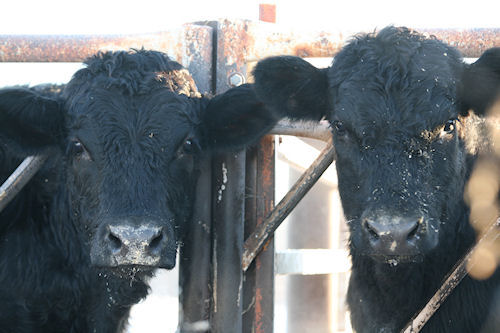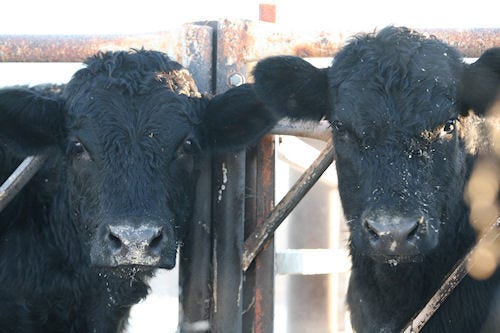
I woke up this morning to the sound of rain. For some, rainy days are miserable and gloomy. But for me, days like today make me ever more thankful. The rain was refreshing – spring is in the air. And a sure sign that I need to stock up on umbrellas – the two that I own of course are nowhere to be found when I need them.
The rain that we have received today isn't nearly enough to get us through this drought. We aren't even close to being done with the drought. Back home on the farm, dad is thinning out the cattle and preparing for this coming season. Although it seems for every one he sells, he ends up with twins the next day as he is in full swing of calving season.

This Summer Will Lead To Thinning Out The Herd
Most of the hay that he sells to the local horse owners, he has decided to keep for his own supply to feed his cows. Even the U.S. Postal Service is 'thinning out their herd' by cutting out Saturday deliveries starting in August. It will be an interesting summer no doubt.
In other news:
The United Fresh Foundation is pleased to announce a generous grant from The Safeway Foundation in Pleasanton, Calif. to support Let's Move Salad Bars to California Schools. Contribution will benefit more than 6,000 students in the Hemet, Pleasanton and Ventura Unified School Districts.
To survive, dairy farmers must think risk management. Fluctuations plague producers on input costs for feed and energy. Now, milk prices are becoming more volatile due to government programs and world prices. While milk prices trend upward, they take wild swings getting there. Monthly all-milk prices touched $22 per hundredweight in 2008, and then fell almost by half to near $11 in 2009.
A pretty little insect called the Emerald ash borer is doing a big ugly number on ash trees across much of the East. New York ag and environmental departments have trying to find ways to check the invasion since it was found in Michigan during 2002. EAB quickly kills all ash trees once it gets established. To date, 18 states are trying to quarantine the movement of trees and firewood to check the spread.
The Commodity Credit Corporation announced county loan rates for the 2013 crops of wheat, corn, grain sorghum, barley, oats, soybeans and other oilseeds (sunflower seed, flaxseed, canola, rapeseed, safflower, mustard seed, crambe and sesame seed); national milled loan rates and state loan rates by class for the 2013 rice crop; regional loan rates for 2013 pulse crops (small chickpeas, large chickpeas, dry peas and lentils); and the national loan rate for the 2013 honey crop.
About the Author(s)
You May Also Like




